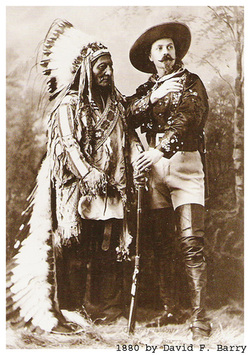When the
colonists landed in the new world, they were eager for the opportunity at a new
life. A whole world lied ahead and possibilities seemed endless. However, upon
exploration, the colonists realized that although the land was new to them, it
was not a new land at all for the Native Americans had long dressed the land.
Though colonists sought to push the Indians aside, Chief Seattle warned them to
deal justly with his people.
 The tone of
this piece is a great representation of the spirit and nature of the native
tribes. Echoing like the thunder of an impending storm, Chief Seattle alludes
to the fact that if the “white men” do not deal justly, a storm will come.
References to the land and Earth being on the side of the “red man” helps to
further give life and power to the warning of the Chief.
The tone of
this piece is a great representation of the spirit and nature of the native
tribes. Echoing like the thunder of an impending storm, Chief Seattle alludes
to the fact that if the “white men” do not deal justly, a storm will come.
References to the land and Earth being on the side of the “red man” helps to
further give life and power to the warning of the Chief.
Prior to the
oration, colonists were very much imperialists in the sense of extending their
power and diplomacy on that of the Native Americans. However, though it may not
be considered a formal nation, nationalism rings true in the veins of the “red
men”. The land in which they dwell is more than just land, it is “the ashes of
our ancestors and their resting place is hallowed ground.” With an emphasis on
the sacredness of the land, we can presume that the Native American’s will go
to great lengths to protect it now or in the next life for according to Chief Seattle,
“there is no death.”
Chief Seattle’s
use of rhetorical questions and logic also gives light to the poor treatment of
the natives as is. Logical questioning is what is helps Chief Seattle emphasize
that it is the “white man” that needs to find the peace in his soul.

You are right, by comparing themselves to nature so much, Chief Seattle goes a long way towards putting it in the minds of others that his people will not be treated unfairly. Incredible how allusions to nature give it so much power, even in the midst of the industrial revolution.
ReplyDelete